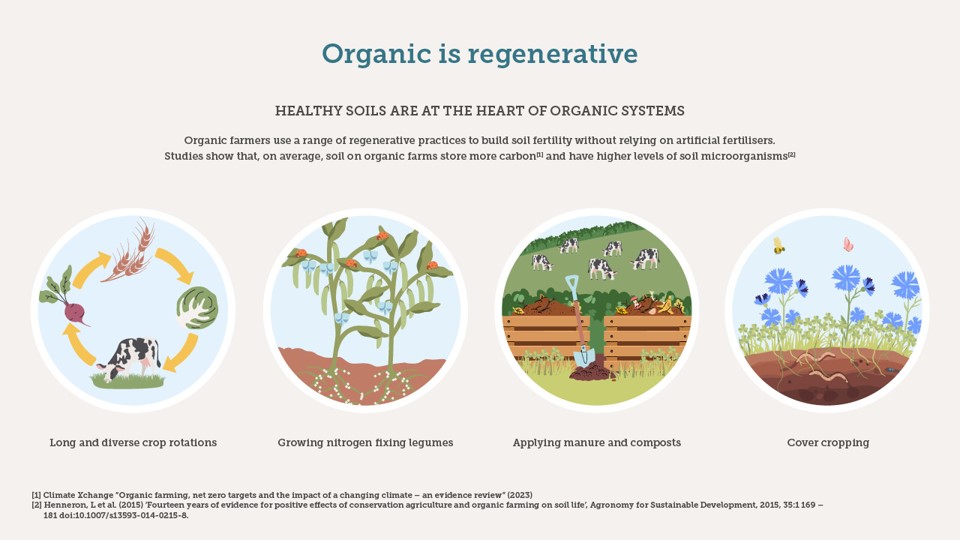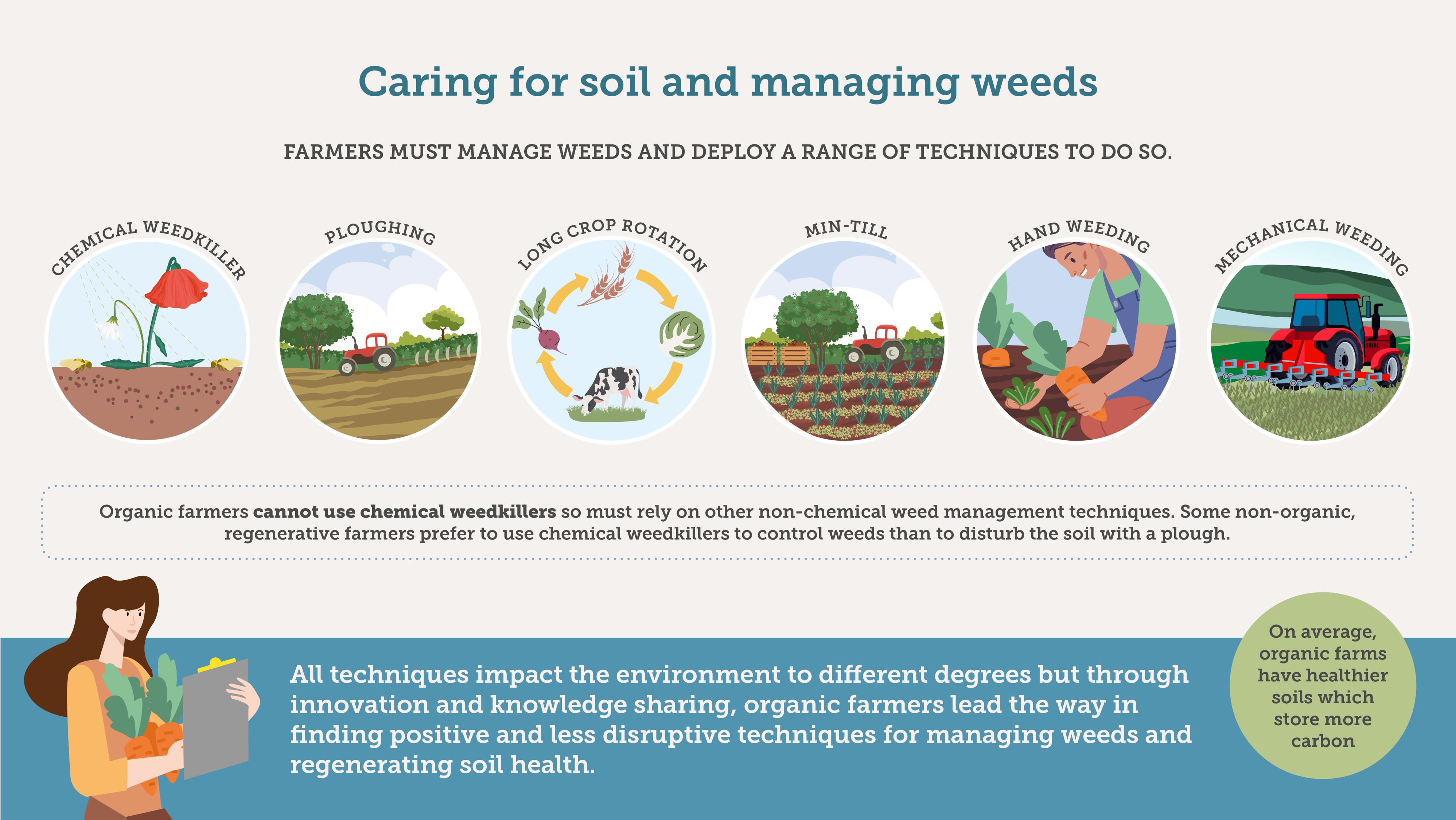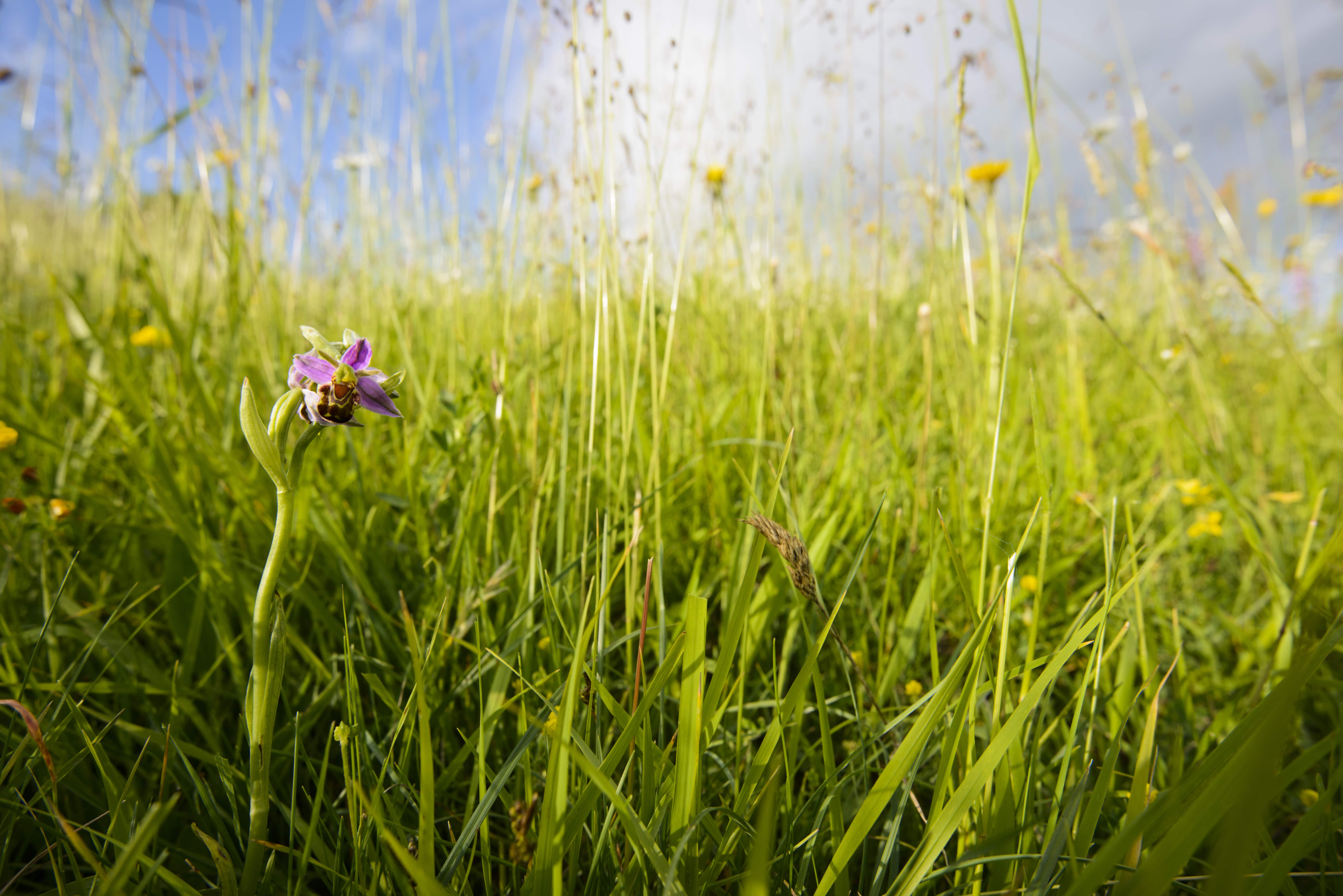
- Soil Association
- Certification
- Marketing organic
- Organic and regenerative farming

Organic and regenerative farming
Organic and regenerative - what's the difference?
There is growing industry engagement in regenerative farming, which is a set of principles focusing on improving soil health through reducing tillage, diversifying crops and extending rotations.
While organic and regenerative farming both share a common goal of creating a restorative food system that benefits the environment and society, there can be confusion around the similarities and differences between the two farming systems.
In light of the increasing use of the term regenerative in marketing, the Advertising Standards Agency have provided some guidance and are continuing to monitor its usage where concerns are raised.
The Soil Association have developed infographics that explain the comparisons and differences between organic and regenerative, which can be used by the industry to help frame organic and regenerative farming effectively.
-
Organic and regenerative infographics
Download
Our infographics outline five key messages:
1. Organic is regenerative
Because organic farms are managed without artificial fertilisers, they already routinely incorporate many beneficial regenerative practices to build and improve natural soil health such as cover cropping, long diverse rotations, incorporating livestock and growing nitrogen fixing legumes. What’s more, organic is proven to deliver a range of restorative outcomes, such as on average 30% more wildlife on organic farms, 25% more soil carbon storage and more soil microorganisms.
2. Organic is about more than soil health
Organic farm standards insist on a whole farm system approach to sustainable farming, that starts with the soil but goes much further. They include the need to maintain and enhance biodiversity and a range of restorative practices such as the use of crop rotation, legumes and composts, as well as prohibiting the use of artificial pesticides, herbicides, insecticides and fertilisers, delivering the UK’s highest standards for animal welfare and providing audit checks throughout the supply chain.
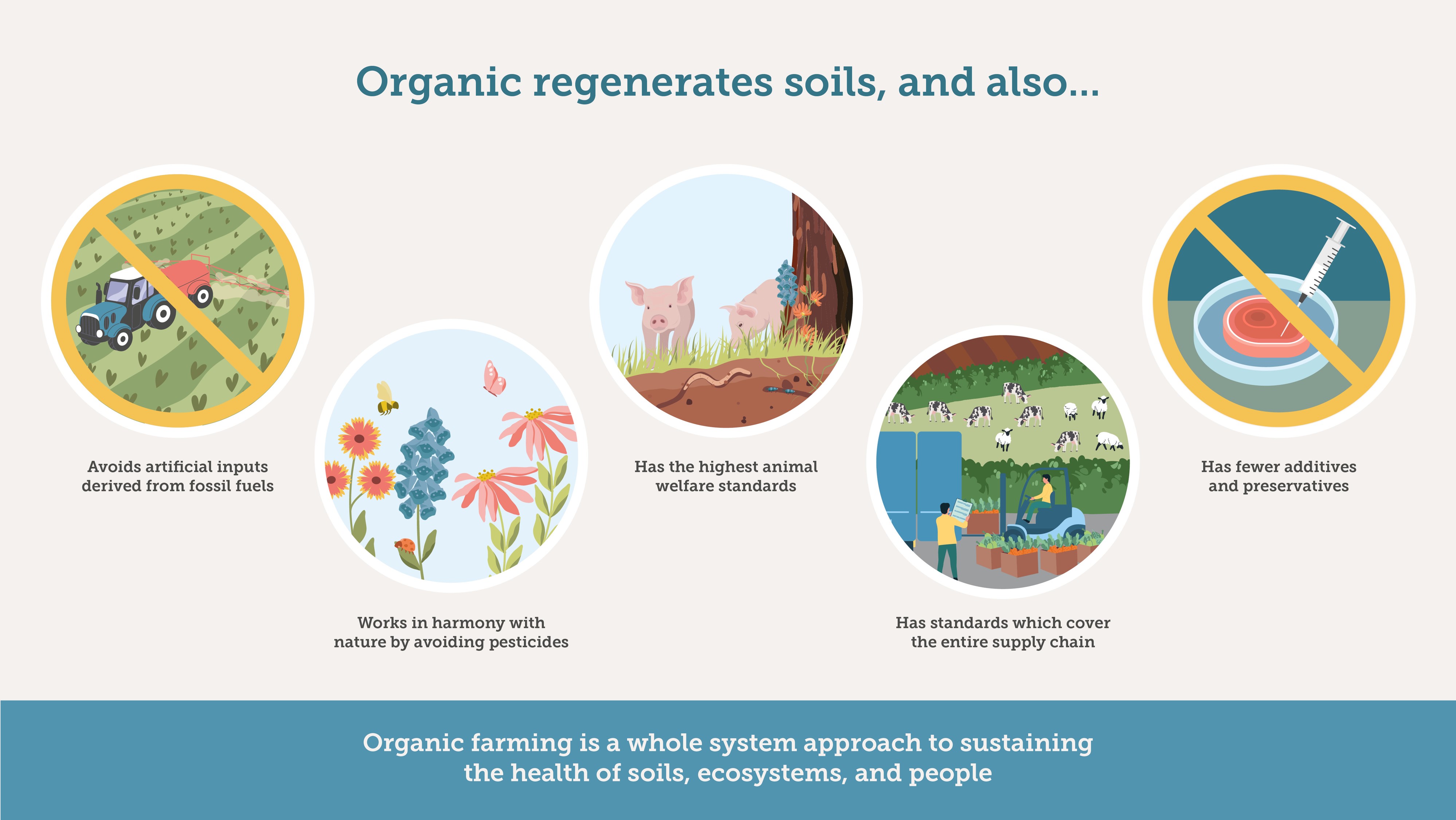
3. Organic is legally defined and independently inspected and verified and therefore protects against greenwashing
Organic is underpinned by a set of robust standards that are independently audited and verified and have been carefully developed to build soil health, biodiversity and ecological balance. There is currently no legal definition for regenerative farming in the UK.
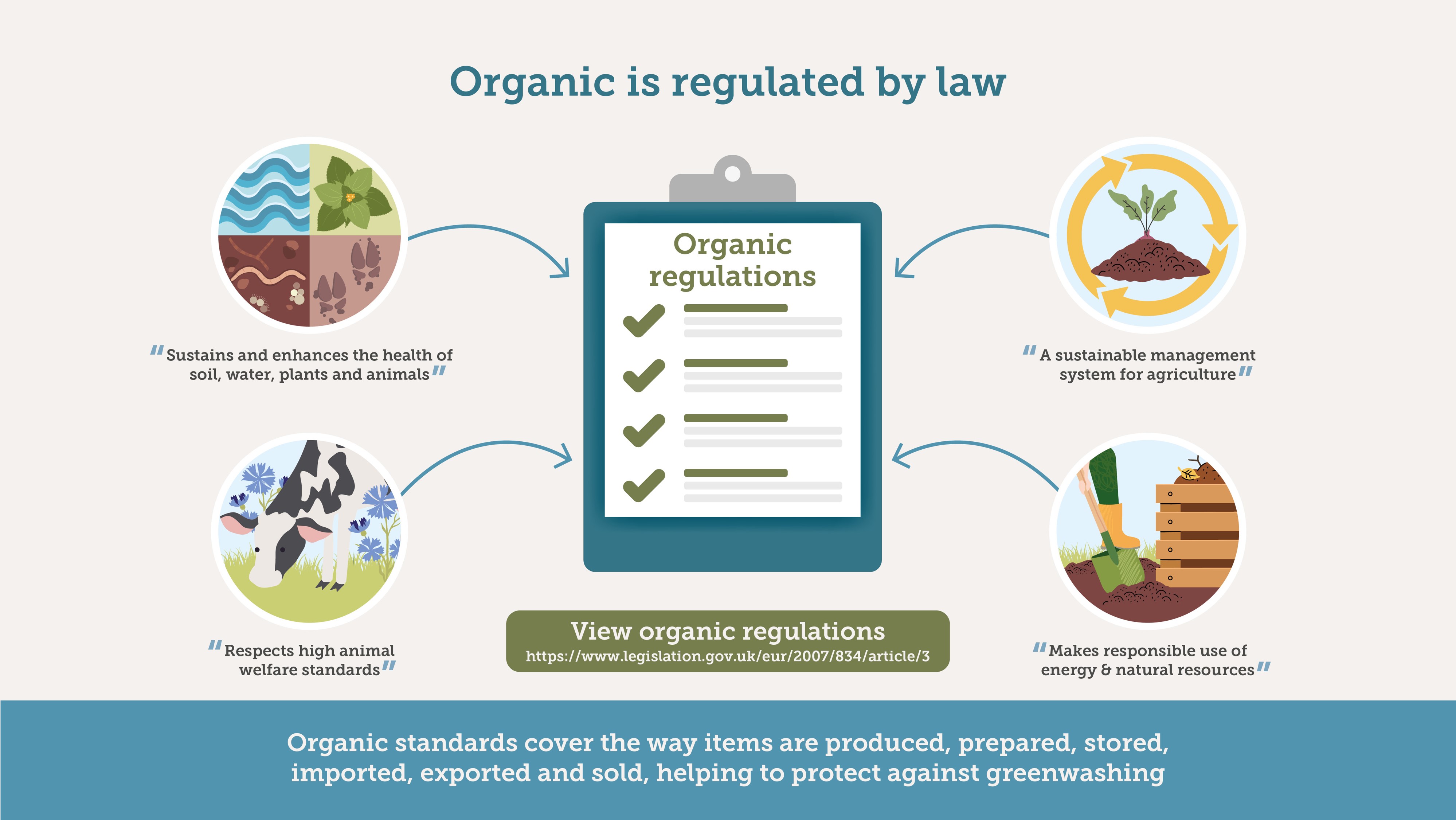
4. A focus on managing weeds and soil disturbance
Minimising soil disturbance is often mentioned as a key benefit of regenerative agriculture. Yet the plough is often replaced with problematic chemicals that bring new problems.
The use of chemical weedkillers, such as glyphosate, are banned under organic standards. Organic farmers use a range of other techniques, including mechanical weeding and cultivations, like ploughing, to control weeds and prepare fields for crops. Many use low and shallow till methods to minimise soil disturbance, alongside other beneficial soil management practices, such as long crop rotations which will include fertility building leys, which extend the cycles between cultivations so they are not needed every year.
Some non organic regenerative farmers prefer to use chemical weedkiller to control weeds than to disturb the soil with a plough. Whilst reducing soil disturbance can improve soil health and reduce damage to soil structure, the use of chemical weedkillers can have a damaging impact on soil biodiversity and the surrounding environment.
Some farm sectors, such as field scale vegetable production will require cultivation techniques, such as harvesting vegetables, that disturb the soil to some degree in both organic and regenerative farming.
There is no silver bullet for soil health and there are trade offs between different approaches. Many organic farmers aim to minimise soil disturbance and some regenerative farmers aim to reduce their agrichemical use and there are opportunities for organic and regenerative farmers to learn from each other.
5. Organic and regenerative farmers have lots to learn from each other to drive innovation at pace.
Organic farmers have been innovating and implementing regenerative practices for decades and therefore there is ample opportunity for knowledge exchange between organic and the wider agricultural sector. At the same time, the rise in regenerative farming could help fast track exciting opportunities for innovation, technology and research and development for organic and non organic farming. The organic standards provide a floor, not a ceiling, and there are opportunities for organic farmers to improve their practices in the spirit of a continuous improvement mindset that underpins the regenerative movement.
There is a growing interest in monitoring farm outcomes. Soil Association Exchange is a platform that helps all farms to measure, monitor and reward sustainability outcomes on their farms. For more information, please view the Soil Association’s Position Statement on Regenerative Agriculture
In this section...



